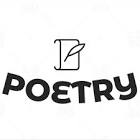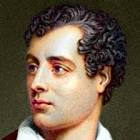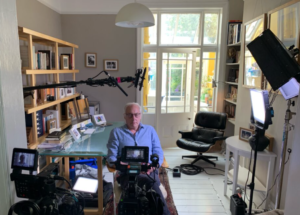- Childish politics - 11th July 2025
- Dead unlucky - 10th July 2025
- Difficult access - 9th July 2025

During 23 years with The BBC, and 40 years in journalism (when he was trained to use simple language, avoiding jargon), our Editor, Welshman Phil Parry has always known that his style of writing was second division compared to that of others, because it followed a template, and now the importance is being stressed of one of the central types – poetry.
Previously he has described how he was helped to break into the South Wales Echo office car when he was a cub reporter, recalled his early career as a journalist, the importance of experience in the job, and made clear that the ‘calls’ to emergency services as well as court cases are central to any media operation.
 He has also explored how poorly paid most journalism is when trainee reporters had to live in squalid flats, the vital role of expenses, and about one of his most important stories on the now-scrapped 53 year-old BBC Cymru Wales (BBC CW) TV Current Affairs series, Week In Week Out (WIWO), which won an award even after it was axed, long after his career really took off.
He has also explored how poorly paid most journalism is when trainee reporters had to live in squalid flats, the vital role of expenses, and about one of his most important stories on the now-scrapped 53 year-old BBC Cymru Wales (BBC CW) TV Current Affairs series, Week In Week Out (WIWO), which won an award even after it was axed, long after his career really took off.
Phil has explained too how crucial it is actually to speak to people, the virtue of speed as well as accuracy, why knowledge of ‘history’ is vital, how certain material was removed from TV Current Affairs programmes when secret cameras had to be used, and some of those he has interviewed.
Earlier he disclosed why investigative journalism is needed now more than ever although others have different opinions, and how information from trusted sources is crucial.

I suppose it’s horses for courses!
As a journalist you are trained to write very quickly, and make even the most complicated issue easily accessible.
In fact you should always have in mind a fictional character who makes up your audience – in my case Mrs Jones in Rhyl.
But I am under no illusions that this is good writing which will stand the test of time, and can be held up against the peerless beauty by the works of someone like Shakespeare (when the 400th anniversary of his first folio has just been celebrated).
 This has now been highlighted by investigations into other great writers (in English), particularly poets.
This has now been highlighted by investigations into other great writers (in English), particularly poets.
I could choose from a huge list, but let’s take just two at either ends of the spectrum, both historically and culturally – Milton and Byron.


Milton was around in the 17th century, and has been described as the “greatest English author” by biographer William Hayley.
His 1667 epic poem Paradise Lost, written in blank verse, was at a time of immense religious flux and political upheaval.
It addressed the fall of man, and included the temptation of Adam and Eve by the disgraced angel Satan, along with God’s expulsion of them from the Garden of Eden.

His celebrated Areopagitica (1644), written in condemnation of censorship, is one of history’s most influential and impassioned defences of freedom of speech and an independent media (although he doesn’t call it that), which are, of course, very dear to my heart.
Milton was revered by writers such as William Blake, William Wordsworth, and Thomas Hardy.
Byron, (or Lord Byron) on the other hand, was VERY different, although to his supporters also extremely important
He was a Scottish poet who lived in the late 18th, and early 19th centuries.
Byron was one of the leading figures of the Romantic movement, and is regarded as among the greatest of Scottish poets.

Among his best-known works are the lengthy narratives Don Juan and Childe Harold’s Pilgrimage, but many of his shorter lyrics in Hebrew Melodies also became popular.
Forget all the controversies, like the fact that Byron racked up huge debts, or that he may or may not have engaged in an incestuous relationship with his half-sister, he was also (I would argue) a great poet.
I am certainly not in his league or that of Milton, but my writing can, sometimes, serve a purpose.

It’s horses for courses!
The memories of Phil’s decades long award-winning career in journalism (when words in his stories were always chosen carefully, but they cannot be seen as great writing) as he was gripped by the rare neurological disease Hereditary Spastic Paraplegia (HSP), have been released in a major book ‘A GOOD STORY’. Order it now.

Publication of another book, however, was refused, because it was to have included names.
Wordplay two is tomorrow – when Phil stresses the importance of calling a ‘spade a spade’, but questions the use of idioms or euphemisms about being sacked, after the abrupt departure of Siân Doyle as Chief Executive of S4C.








